News
February 2017
ePress mentioned in ‘Mine by Right: Copyright in Aotearoa’
Elizabeth Heritage of Creative Commons Aotearoa New Zealand explains copyright and all things Open Access in an essay for The Pantograph Punch, citing the more than NZ$50 million that NZ research institutions spend annually on journal subscriptions and database access. But, she says, things are looking up for Open Access research:
‘Happily, all of this is starting to change: research institutions across the world are challenging publishers like Elsevier, and, separately, thousands of universities have open research repositories. In New Zealand, you can get Open government data from data.govt.nz and all kinds of Open taonga from DigitalNZ (use the ‘usage’ filter), and so far we have two Open Access scholarly publishing houses: Tuwhera at AUT and ePress at Unitec.’
Read the full article on the Pantograph Punch site.
November 2016
ePress presents at the National Digital Forum Conference
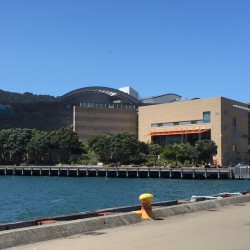 What an exciting time ePress is having at the moment. We have just returned from the National Digital Forum Conference for 2016, held at Te Papa in Wellington, and the team can report back only good things. Both days were filled with inspiring presentations; too many to mention them all here, take a look at the NDF YouTube channel. Some of our highlights include hearing from The National Library about Papers Past recent digital transformation, all of the punchy Lightning Talks and a fantastic keynote presentation by Dave Brown from Microsoft Research.
What an exciting time ePress is having at the moment. We have just returned from the National Digital Forum Conference for 2016, held at Te Papa in Wellington, and the team can report back only good things. Both days were filled with inspiring presentations; too many to mention them all here, take a look at the NDF YouTube channel. Some of our highlights include hearing from The National Library about Papers Past recent digital transformation, all of the punchy Lightning Talks and a fantastic keynote presentation by Dave Brown from Microsoft Research.
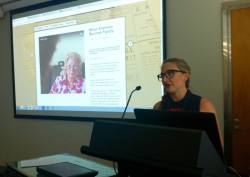 On the second day Associate Editor Louise Saunders presented the ePress publication More Than a War: Remembering 1914-1918 by Dr Sara Donaghey, Sue Berman and Nina Seja. We felt it was well received, demonstrating how an educational institution can go into partnership with community and link curriculum. Let us know what you think, click here to see the presentation. All in all a great line-up from NDF and valuable learning experience for ePress.
On the second day Associate Editor Louise Saunders presented the ePress publication More Than a War: Remembering 1914-1918 by Dr Sara Donaghey, Sue Berman and Nina Seja. We felt it was well received, demonstrating how an educational institution can go into partnership with community and link curriculum. Let us know what you think, click here to see the presentation. All in all a great line-up from NDF and valuable learning experience for ePress.
April 2016
New mode of publishing introduced
 Community Development scholars and practitioners no longer have to wait until the full edition of ePress’ flagship journal is ready for publishing in order to access the latest thinking in the field.
Community Development scholars and practitioners no longer have to wait until the full edition of ePress’ flagship journal is ready for publishing in order to access the latest thinking in the field.
ePress is rolling out HTML versions of papers for volume two, edition one of Whanake – The Pacific Journal of Community Development.
Each article will first be published online at Whanake‘s website, before the entire edition is published and made available to download as a pdf.
The update is in line with ePress’ commitment to open access publishing and is designed to ensure ease of access and viewing options for all readers.
Whanake’s mission is to serve as a crucible of democracy, where people come together to share their dreams and plan their common futures.
It has refereed papers of 4000-6000 words, reviews, practice notes from the field, and opinion pieces. The journal provides space for posing questions, documenting emerging trends in research and practice, and sharing case studies and biographies, all within the varied field of community development.
Visit www.whanake.unitec.ac.nz to read papers from current and past editions of the journal.
December 2015
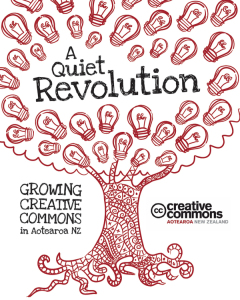 What a way to end the year
What a way to end the year
A Quiet Revolution: Growing Creative Commons in Aotearoa is now available for free download. Put a copy on your computer and enjoy a great read this summer. The book features yours truly, ePress, as a case study in this work about the development of Creative Commons in New Zealand.
December 2015
ePress is Full of Winners!
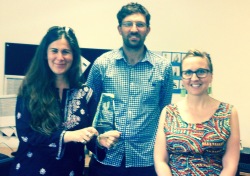 Editor-in-Chief Evangelia Papoutsaki won the Researcher Excellence Award at the Unitec Staff Awards 2015. Valia received the award for her role at ePress, her leadership of staff and student researchers at Unitec and across the Pacific. Giles Dodson, ePress Deputy Editor, was also nominated and placed second for his contribution to ePress, his leadership of externally-funded research projects and the Unitec Early Career Researcher Forum. Congratulations Valia and Giles! What a lovely way to end 2015.
Editor-in-Chief Evangelia Papoutsaki won the Researcher Excellence Award at the Unitec Staff Awards 2015. Valia received the award for her role at ePress, her leadership of staff and student researchers at Unitec and across the Pacific. Giles Dodson, ePress Deputy Editor, was also nominated and placed second for his contribution to ePress, his leadership of externally-funded research projects and the Unitec Early Career Researcher Forum. Congratulations Valia and Giles! What a lovely way to end 2015.
The team: Evangelia Papoutsaki (left), Giles Dodson (middle) and Louise Saunders (right)
October 2015
A Monograph Celebration
To celebrate the launch of Jay Hay’s monograph Chaos to Capability: Educating Professionals for the 21st Century, the education department held a launch party. It was a lovely event where Jay spoke of his pleasure at completing the publication and the joy of finally being able to give a copy to his children. Well done Jay!
October 2015
ePress to be case study in a book about the development of Creative Commons in New Zealand
ePress has made it into print as a case study in a book soon to be released by Creative Commons. The book, titled A Quiet Revolution: Growing Creative Commons in Aotearoa, discusses the development of Creative Commons in New Zealand and will primarily be an eBook, however they would love to be able to make a small print run as well. To that end, Creative Commons has just launched a crowdfunding campaign on PledgeMe: https://www.pledgeme.co.nz/projects/4119-creative-commons-aotearoa-print-book
The print book won’t be available for sale in bookshops or anywhere else, so if you’d like a copy, pledging $25 or more to the campaign is the only way to get one. Even if you’re not able to spare any cash, ePress would love it if you’d help spread the word – please tell anyone you think might be interested.
Cover design by Elton Gregory CC BY licence
May 13th 2015
Scoop Publish Press Release for Perspectives in Biosecurity Research Series
‘With the controversy surrounding the appearance of the Queensland fruit fly in the Auckland suburb of Grey Lynn, Perspectives in Biosecurity editors Dan Blanchon and Mel Galbraith feel their new publication could not be timelier. The forthcoming research series, due for release at Unitec’s in-house online publisher ePress in 2015, is a multi-disciplinary digital series of research outputs covering all aspects of the field of biosecurity. The work will be authored primarily by staff, students, graduates, associates, and collaborators of Unitec, addressing biosecurity issues and, occasionally, fruit flies…’
Click here to read the press release
February 25th 2015
Gluejar supports ePress
President and Founder of Gluejar, Eric Hellman writes ‘Ngā Reanga: Youth Development Māori Styles by Josie Keelan from ePress, is another example of an academic book with important jobs to do. While its primary job is a local one — the advancement of understanding and practice in Māori youth development — it has another job, a global one. Being free helps it speak to scholars and researchers around the world.’
Click here to read the full article
February 2015
ePress and open access publishing
Check out a Creative Commons interview with the ePress Editor-in-Chief Evangelia Papoutsaki and Editorial Assistant Louise Saunders promoting ePress, published on both Creative Commons and New Zealand Commons websites. What great promotion of open access publishing in New Zealand!
January 2015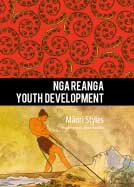
unglue.it promotes ePress author Josie Keelan
Ngā Reanga: Youth Development Māori Styles by Josie Keelan is book of the day on Unglue.it Congratulations Josie! Unglue.it is a website dedicated to the development of sustainable funding and distribution for Creative Commons licensed books.
Click here to read their post on Josie’s book
Click here to read how Unglue.it is helping to get libraries involved with Creative Commons
December 2014
Advance Magazine Promotes ePress
On page six of Advance magazine’s summer 2014 issue is an article about ePress as it ‘aims to stimulate and facilitate innovation in scholarly communication’. A huge thanks goes out to our designer Penny Thomson, who worked very hard to get the publication’s covers ready for this write-up and to Trudi Caffell who composed it. What a fantastic effort, thank you Penny and Trudi.
2014
Review of Press, Politics and People in Papua New Guinea 1950-1975
A review by Dr Scott Williams in the Pacific Journalism Review. ‘Press, Politics and People should be required reading for people who are concerned with the history and current trajectory of Papua New Guinea. It is also a book with much to offer for university courses in journalism, history and social science methodology…’ click here to read more.
November 19th 2014
New Publication
Ngā Reanga: Youth Development Māori Styles is a collection of various pieces written by Teorongonui Josie Keelan over a number of years, including both her masters and doctoral theses. Keelan is currently the Dean of Teaching and Learning Mātauranga Māori at Unitec, and youth development is a long-standing area of interest for her, especially the training and development of youth workers.
Keelan firmly believes young New Zealanders deserve to be served by trained and informed youth workers. Her own background includes working for government and non-government agencies and operating her own successful consultancy business. She has worked both in Aotearoa New Zealand and for a large UN agency managing a South Pacific regional project. She has also done some consultancy work in youth development in Botswana and Zambia.
Keelan has been in academia since 1992 and although she has worked in a range of teaching and learning roles, has almost always returned to focus on youth development. This book is her latest contribution to that field. In making it freely available, she hopes others will continue to develop and write about youth development with a strong indigenous and Aotearoa New Zealand flavour.
May 29th 2014
Interviews with the Authors
An interview with author Philip Cass by Unitec student Emma Raho
People, Politics and the Press in Papua New Guinea began life as the author’s doctoral thesis, the first chapters of which were written on Delma Island in the Arabian Gulf on an overheating computer. Philip Cass worked as a journalist and editor in Queensland for a decade before becoming an academic. His teaching career has taken him all over the world and included stints in darkest Teesside, nine years in Abu Dhabi and a year in the mountains of Oman.
Born and raised in Papua New Guinea, he knew many of the people and places that feature in this book. He returned to PNG several times in the early 1990s to research his MA thesis on the missionary press in German New Guinea. He worked as a journalism trainer for Word Publishing in Port Moresby and took a sabbatical from Central Queensland University to work as chief sub-editor of The Times of PNG. He was one of the few Western journalists allowed into Rabaul to cover the 1994 volcanic eruption. After leaving PNG he worked at the University of the South Pacific in Fiji, where he established the student newspaper Wansolwara.
While working in the UK and the Arabian Gulf he continued his interest in the Pacific through academic articles and news stories and presentations to international conferences, including the bi-annual gathering of the European Society for Oceanists. He has been a regular contributor to the Pacific Journalism Review and is a research fellow at the Pacific Media Centre at AUT. He moved to Auckland in 2010 to take up a position as senior lecturer at Unitec.
December 11th 2013
New Publication
Te AkoWhaiora: Through learning is well-being
Author: Kim Penetito
Te Ako Whaiora provides a resource for teachers across Unitec who are looking for examples and prompts to give effect to Te Noho Kotahtanga in their teaching practice.
September 2nd 2013
Introducing eMedia
In 2012, the Unitec ePress committee commissioned Justin Barter, a graduate of the Graphic Design and Animation pathway from the Design and Visual Arts Department (DVA) to draft some guidelines for publishing eMedia documents.
An eMedia publication is a published work which exploits certain potential that does not exist in hard-copy publishing. It might include audio, video, animation or interactive functions. It can include text and images, but is not limited to these forms of communication.
Justin was asked to use the exhibition Evocative Objects, curated by DVA staff member Julie Downie for Unitec’s Snowhite Gallery, as a case study for this project. Julie recorded the artists talking about their work and played these conversations during the exhibition alongside the relevant artworks. When it came to publishing her essay outlining the underlying ideas behind her curatorial project, she wanted to embed these sound files into the essay, alongside reproductions of the artworks. The digital nature of ePublishing makes it an ideal format for combining photographs, text and the spoken word.
The interactive eMedia document “Evocative Objects” is the first of its kind to be peer reviewed for ePress and is published here http://www.unitec.ac.nz/epress/index.php/the-evocative-object-why-objects-matter/
This project was undertaken because an ePress offers potential communication tools unique to its medium. A big mistake with ePublishing is to try to emulate traditional, paper-based publishing. The physicality of paper with the impression of ink on its surface, the inimitable smell of a real book, its three-dimensional, tactile presence, or the fresh, seductive realism of a glossy magazines; these characteristics cannot be reproduced in a world of pixels.
Digital publishing, on the other hand, provides the potential to hear the concerto for violin being discussed in a journal paper and to link to a video of an expert commenting on the technical demands of the new piece. The reader can zoom in on a photograph to view in detail a violin which is relevant to the paper and then link to the page on the composers website where the musical influences are referenced.
In order to maximise this potential, the guidelines developed by Justin will ensure smooth functionality in the web environment. These guidelines will show contributors how to make an interactive PDF, which can carry images, audio files and video as well as text. This includes how to optimise this material for efficient publication using the web, how to link different material together and what types of video, audio and photographic files should be used.
PDF is the platform chosen by ePress, because it is a format which can be read by any computer with a free downloadable ‘reader’. Although it lacks some of the functionality of proprietary software, it avoids the limitations of the brand-specific eBooks. These are problematic, because they are proprietary, with one format for Kindle, another for iPad etc. There is an eBook that operates from a browser, but it only operates with and as well as the broadband capacity available.
Unitec ePress Steering Committee aspires to occupy the eMedia space within scholarly publishing, as it has great potential. That potential lies in the development and publication of books, articles, proceedings, reports, scores, scripts and all forms of creative writing, which innovatively incorporate digital media, within a quality assured, peer reviewed environment. That space may expand in the future to include work without text, but ePress will proceed one step at a time.
In order to stimulate activity in this area, Unitec ePress will very soon offer contestable stipends to help researchers to technically facilitate their projects. Successful applicants would be advised in how to engage the necessary support from appropriate digital media experts. Watch out for a call for expressions of interest from Unitec ePress.
Marcus Williams
Deputy Editor
Unitec ePress
June 19th 2013
New Publication
The Unstable City engages with questions of Auckland’s architectural heritage and draws attention to the potential widespread loss of buildings. In this publication for Auckland Ecologies, Auckland concerns are explored in the context of the precariousness of the city in general.
The immediate prompt for the publication was the series of devastating earthquakes in Christchurch during 2010 and 2011. Subsequent to these events Auckland City’s Earthquake-Prone Building policy was revisited and many building owners have been required to assess their buildings and identify those at risk.
Concurrently the Ministry for Business Innovation and Employment (MBIE) is developing policy recommendations that may speed up the mandatory time frames for a building’s risk assessment, and subsequent strengthening or demolition. Auckland’s seismic vulnerability and burgeoning growth projections specifically threaten old buildings. This project champions their value and signals their precarious status.
Allan McDonald’s photographs draw attention to the uncertainty surrounding much of the commercial architecture of the late 19th and early 20th centuries. These environments, which are often occupied by small businesses and diverse communities, are being squeezed by increased regulation and a diminished economy.
Krystina Kaza works within the representational tradition of mapping, both a scientific undertaking and an act of the imagination. Her intention is not to make maps that are objectively accurate documents, but to make maps which, like cities, might be read through the subjective lens of memory.
Jeanette Budgett writes of the contexts in which architectural heritage may be considered, in particular in Auckland, and in the emblematic ‘unstable city’. How is history preserved while admitting contemporary change? Why does largely unrecognised architecture count as heritage? How do technocratic agendas dominate the public attention and unleash a series of far-reaching effects in the shape of the city? These questions remain crucial for Auckland, a city precariously subject to the forces of development.
ePress Submission Form Update
The submission form on the ePress website has now been updated. To submit your work of print or eMedia concept to the ePress for consideration, please complete the form here.
June 17th 2013
Introducing the Auckland Ecologies Publications Theme
Auckland will have another million citizens in 30 years. Where are these people going to live? What will happen to the existing infrastructure let alone the environment? These questions and the many others that will inevitably arise are the subject of investigation by the Auckland Ecologies research group. Auckland Ecologies is a multidisciplinary collective for the Faculty of Creative Industries and Business that was initiated by Matthew Bradbury, a senior lecturer from the Department of Landscape Architecture in 2011. The group draws on the collective ability of the FCIB, strengthened by the disparate disciplines, to find new insights into contemporary Auckland urban issues.
The Unstable City, a joint research project from the Department of Design and Department of Architecture is one of the first outcomes of the Auckland Ecologies group. Alerted to the fragile and provisional nature of Auckland’s heritage architecture by the Christchurch earthquake, well-known documentary photographer Allan MacDonald and architects Krystina Kaza and Jeanette Budget have produced a unique research collaboration.Their response, a carefully choreographed mediation of photography, art practice and written commentary, transcends the more conventional research models that purport to deal with heritage building documentation. Their project responds to the challenge of Auckland built heritage post Christchurch by asking us all an extremely uncomfortable question, how much do we value our architecture?
A second publication under Auckland Ecologies is currently under way. Resilient Sprawl, a book that proposes a new development model for Auckland. The authors, Dushko Bogunovich from the Department of Architecture and Matthew Bradbury from the Department of Landscape Architecture believe that there is a need to put aside the two dominant ideological development models prevalent in Auckland, intensification or greenfield development. Instead we should focus on Auckland’s own unique landscape, a volcanic isthmus and the existing infrastructure, a dominant north south transport spine. Working with ‘the way things work’, the authors propose a new model for Auckland’s growth, a linear city and a water city. The publication explores this concept through a discussion of the idea of density and tests one part of the proposal, the water city, with a design investigation into development options in Beachlands and Maraetai.
ePress and the research collective is inviting publication proposals under this theme from Unitec members of staff, students and associates.
May 2013
Call for Submissions
Do you have a research report, conference paper or creative work? Are you setting up a journal idea or putting an edited volume together with colleagues and students that is awaiting publication? Bring it to Unitec ePress and we can help you get it published.
ePress is calling for submissions from staff and students for the following types of ePublications, books and edited volumes:
- Research Reports
- Discussion/Working & Occasional Papers (based on unpublished conference presentations or similar outputs)
- Conference/Symposia Proceedings
- Monographs (based on Masters/PhD theses or other major research project)
- Journals
- eMedia (creative work)
To view published work examples please visit the ePress online at http://www.unitec.ac.nz/epress/
ePress peer-reviews all submissions enabling authors to publish quality assured publications, while giving them the opportunity to reach a wider audience. Submissions to the ePress can be made at any time. The editorial team is committed in helping you to prepare your manuscript for publication.
For further information about the ePress and the publication submission process please visit http://www.unitec.ac.nz/epress/index.php/submissions/
If you have any further inquiries, please contact us at epress@unitec.ac.nz or email ePress Editor-in-Chief, Associate Prof. Evangelia Papoutsaki epapoutsaki@unitec.ac.nz or ePress Deputy Editor, Associate Prof Marcus Williams mwilliams@unitec.ac.nz
April 11th 2013
ePress Editor-in-Chief Evangelia Papoutsaki writes a guest blog for advance Magazine on the value of open access to scholarship. In her blog, Evangelia talks about the importance of shared knowledge and the role of the ePress in highlighting best research practice and nurturing research culture at Unitec. Nice work Evangelia!
May 2012
The Unitec ePress has sucessfully published it’s first works, all of which are available for free download from the ePress website here. An array of new publications are currently under review and will be up soon. In addition to this, the ePress also features in the Autumn 2012 issue of Advance Magazine. To read the article click here.
To find out more about how the Unitec ePress can help you publish your work online, please visit the ePress Information for Authors page.
October 2011
The official launch of the Unitec ePpress was held at the Unitec Research Symposium on October 20th 2011.
Hailed as exceptional by all who attended, the Research Synposium was enjoyed by many, both staff and students alike.
The Unitec Research Office would like to thank everyone who contributed in making this event a success.
Leave a Reply
You must be logged in to post a comment.
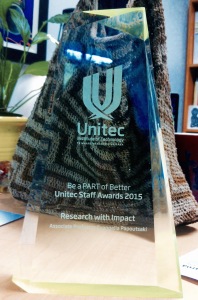
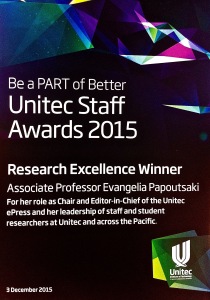
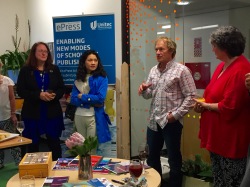
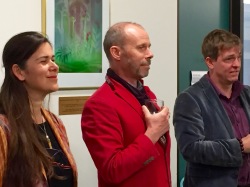
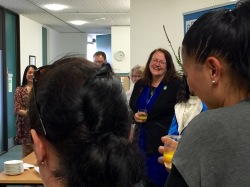
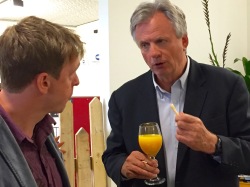
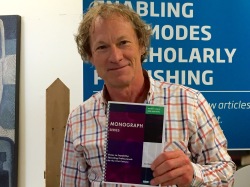
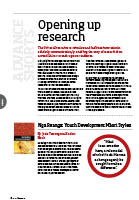

1 Pingback